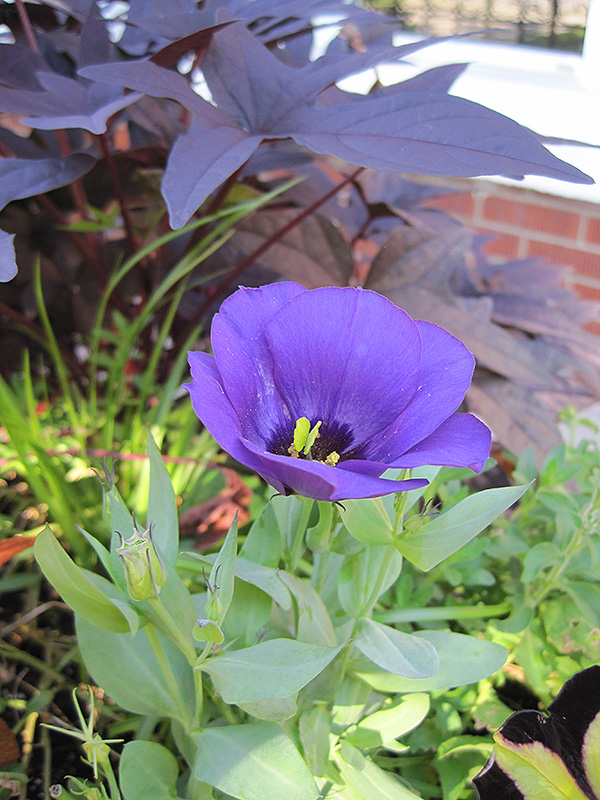10 inches
6 inches


(annual)
PanAmerican
Forever Blue Lisianthus features showy semi-double indigo cup-shaped flowers at the ends of the stems from early to late summer. The flowers are excellent for cutting. Its pointy leaves remain green in color throughout the season.
Forever Blue Lisianthus is an herbaceous annual with an upright spreading habit of growth. Its medium texture blends into the garden, but can always be balanced by a couple of finer or coarser plants for an effective composition.
This plant will require occasional maintenance and upkeep, and should not require much pruning, except when necessary, such as to remove dieback. It has no significant negative characteristics.
Forever Blue Lisianthus is recommended for the following landscape applications;
- Mass Planting
- Border Edging
- General Garden Use
- Container Planting
- Hanging Baskets
Forever Blue Lisianthus will grow to be about 10 inches tall at maturity, with a spread of 8 inches. When grown in masses or used as a bedding plant, individual plants should be spaced approximately 6 inches apart. Although it's not a true annual, this fast-growing plant can be expected to behave as an annual in our climate if left outdoors over the winter, usually needing replacement the following year. As such, gardeners should take into consideration that it will perform differently than it would in its native habitat.
This plant does best in full sun to partial shade. It does best in average to evenly moist conditions, but will not tolerate standing water. It is not particular as to soil type or pH. It is highly tolerant of urban pollution and will even thrive in inner city environments. This is a selected variety of a species not originally from North America.
Forever Blue Lisianthus is a fine choice for the garden, but it is also a good selection for planting in outdoor containers and hanging baskets. It is often used as a 'filler' in the 'spiller-thriller-filler' container combination, providing a mass of flowers against which the larger thriller plants stand out. Note that when growing plants in outdoor containers and baskets, they may require more frequent waterings than they would in the yard or garden.
